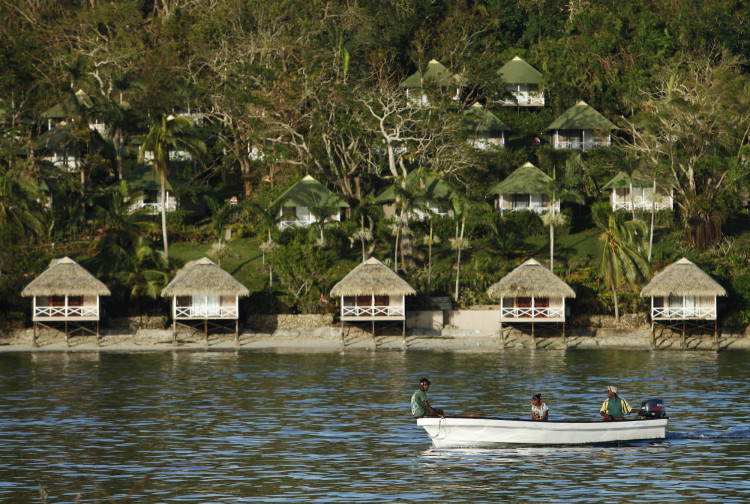Five Pacific island nations will start withdrawing from the region's main political forum, according to a joint statement Tuesday. The departures are fallout from a disputed leadership vote last week.
The islands and countries of the Pacific Island Forum are strategic locations that have in recent years become a battleground for influence between China and the U.S. and its allies, regional watchers said Tuesday. The division of the forum might provide an opening for China to boost its influence in the region, the experts said.
"Chinese investors have been behind large building and business projects in Palau, and its tourism industry is closely related to China," Guangdong Research Institute for International Strategies professor Zhou Fangyin said in the Global Times.
"Meanwhile, the U.S. is also actively strengthening its ties with Palau. Former U.S. defense secretary Mark Esper visited the nation last year in a bid to reinforce the U.S. commitment to a long-term relationship with the tiny country, which the U.S. media said highlighted U.S.-China competition," Zhou said.
Three of the Pacific states who have left - Palau, Micronesia and the Marshall Islands - are closely allied to the U.S by compacts of free association with Washington.
Kiribati has recently changed its formal diplomatic recognition of Taiwan and turned to mainland China - leading to concerns over an increased presence and influence of China over the far-flung archipelago.
Nauru, a former Australian colony, remains close to that country and is dependent on its financial support.
"Washington and Canberra have been thinking about thwarting Beijing's influence in the region, so they keep hyping up the so-called China threat theory. An undersea internet cable project is viewed as China's grip on information, and the loans to these countries' infrastructure development are interpreted as debt traps," Zhou said.
Meanwhile, the forum defections alter the makeup of the forum and change its relationships with the broader world. Without the Federated States of Micronesia there will be no countries in the forum north of the equator, The Guardian reported Tuesday.
Jonathan Pryke, director of the Pacific Islands Program at the Lowy Institute, said the defections were a "a disaster for both the forum and Pacific regionalism...It's clear regionalism couldn't hold up in the age of zoom. It will be on life-support until the region can get back to face-to-face mode."
The dispute represents one of the biggest member revolts in the 50-year history of the forum, which has consistently lobbied larger nations to combat climate change that threatens their low-lying islands.
Most island nation governments are also facing severe economic problems as a result of their heavy reliance on international tourism, an industry that abruptly shut last year because of the coronavirus pandemic.




